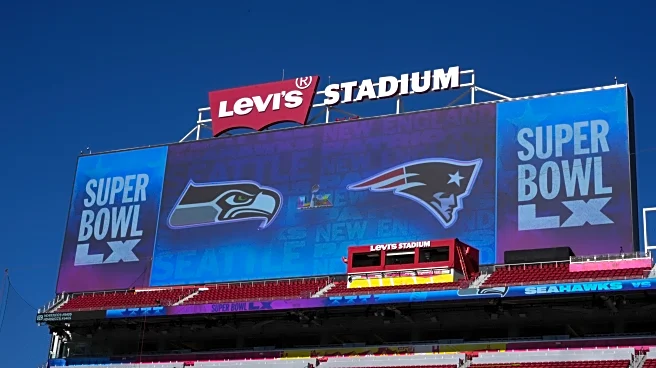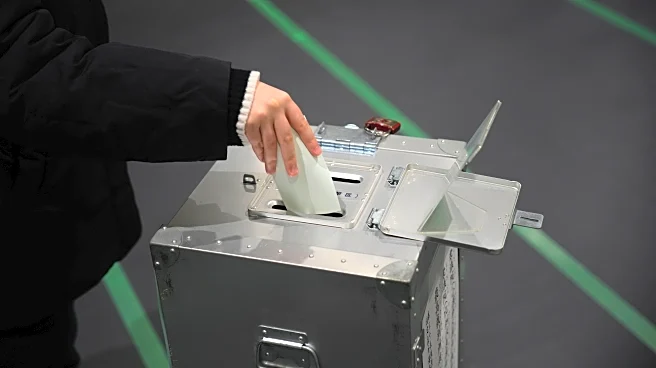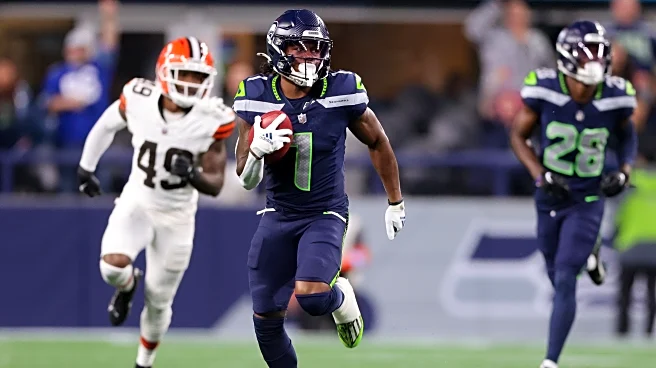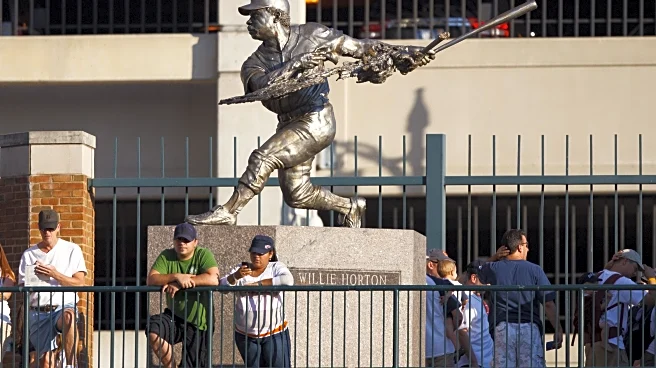What's Happening?
President Donald Trump marked Veterans Day with a ceremony at Arlington National Cemetery, where he laid a wreath at the Tomb of the Unknown Soldier alongside Vice President J.D. Vance and other officials. During his speech, Trump announced that Veterans Day would
also be recognized as 'Victory Day,' celebrating U.S. triumphs in World War I and World War II. This idea was previously floated by Trump during Memorial Day, echoing Harry Truman's 1946 proclamation. Trump emphasized the holiday as a celebration of strength and resolve, stating that future wars would be fought solely to win. Vice President Vance also spoke, highlighting the importance of honoring living service members who continue to defend freedoms.
Why It's Important?
The declaration of Veterans Day as 'Victory Day' by President Trump has sparked debate over the balance between ceremonial recognition and tangible support for veterans. Critics argue that while the holiday is publicly celebrated with flags and speeches, ongoing issues such as funding gaps, understaffing at VA hospitals, and delays in claims processing persist. Veterans' organizations and healthcare professionals have raised concerns about the adequacy of year-round services for veterans. The event underscores the need for steady policy and budgetary decisions that directly impact service members' lives, rather than focusing solely on ceremonial spectacle.
What's Next?
The debate over the substance versus spectacle of Veterans Day celebrations is likely to continue, with veterans' groups advocating for more substantial policy changes and budgetary allocations to address the ongoing challenges faced by service members. The focus may shift towards ensuring that the recognition of veterans is matched by improvements in healthcare services, claims processing, and overall support systems. Political leaders and advocacy groups may push for legislative action to address these issues, aiming to provide more comprehensive support for veterans.
Beyond the Headlines
The renaming of Veterans Day to 'Victory Day' raises questions about the cultural and ethical implications of framing military service in terms of victory and triumph. This perspective may influence public perception of military engagements and the role of service members, potentially overshadowing the sacrifices and challenges faced by veterans. The emphasis on victory could also impact how future military actions are justified and perceived by the public, shaping national discourse on military policy and veterans' affairs.
















